Home>diy>Home Improvement>How To Prepare For Home Renovation


Home Improvement
How To Prepare For Home Renovation
Modified: October 21, 2024
Get ready for your home renovation with our expert tips and advice. From planning to budgeting, we've got you covered for a successful home improvement project.
(Many of the links in this article redirect to a specific reviewed product. Your purchase of these products through affiliate links helps to generate commission for Storables.com, at no extra cost. Learn more)
Introduction
Welcome to the exciting world of home renovation! Whether you’re looking to update your living space, increase the value of your property, or simply give your home a fresh new look, embarking on a renovation project can be a rewarding and transformative experience. However, proper planning and preparation are crucial to ensure a successful outcome. In this article, we will guide you through the process of preparing for a home renovation, covering everything from assessing your needs and setting a budget to managing the renovation process and dealing with unexpected challenges along the way.
Before diving headfirst into your renovation project, it’s important to take the time to carefully assess your needs and goals. What areas of your home do you want to improve or change? Are you looking to update a specific room, such as the kitchen or bathroom, or are you considering a whole-house renovation? Think about the functionality, aesthetics, and potential future use of the space. This initial assessment will help you prioritize your renovation goals and provide a clear direction for the project.
Once you have a clear vision in mind, the next step is to set a realistic budget. Renovations can vary widely in cost, depending on the scope of the project and the materials and labor involved. Research the average costs of similar renovations in your area and allocate funds accordingly. It’s essential to factor in not only the cost of materials and labor but also any additional expenses such as permits, design fees, and unexpected contingencies. Setting a budget will help you make informed decisions throughout the renovation process and avoid any financial surprises.
Now comes the decision of whether to hire a contractor or take the DIY route. Consider the complexity of your renovation project, your skill level, and the time and resources you have available. While a DIY renovation can be a rewarding and cost-saving option, it’s important to be realistic about your abilities and the potential risks involved. Hiring a reputable contractor can provide you with expertise, efficiency, and peace of mind. Be sure to gather multiple quotes, check references, and review their previous work before making a decision.
Before starting any renovation work, you may need to obtain necessary permits and permissions from your local building authority. Regulations can vary based on the type of renovation and your location. Research the specific requirements and allow sufficient time for the approval process. Failing to obtain the appropriate permits can result in costly fines and delays.
Once you have a clear plan in place, it’s time to create a renovation timeline. Identify key milestones and deadlines for each phase of the project, such as demolition, construction, and finishing touches. Factor in any potential delays or adjustments to the plan. Having a well-structured timeline will help keep the project on track and ensure that everyone involved is aware of the schedule.
Now comes the fun part – making design decisions! From choosing paint colors and flooring options to selecting fixtures and finishes, the design process is where you can unleash your creativity and personalize your space. Research current trends, gather inspiration from home improvement magazines and websites, and consult with professionals to help you make informed design choices that align with your vision and budget.
With a design plan in hand, it’s time to start selecting and purchasing materials. Research suppliers, compare prices, and ensure that the materials you choose are of good quality and suitable for your renovation project. Keep track of delivery times and place orders well in advance to avoid any delays that could impact the project timeline.
Before the renovation work begins, you’ll need to prepare your home for the upcoming changes. This includes decluttering and removing any furniture or belongings from the renovation area, protecting adjacent areas from dust or damage, and ensuring that necessary utilities are accessible. Take photos and make notes of the existing condition of the space to refer back to during the renovation.
Key Takeaways:
- Proper planning, budgeting, and clear communication are essential for a successful home renovation. Assess needs, set a realistic budget, and maintain open communication with contractors to achieve your desired outcome.
- Embrace flexibility and adaptability when unexpected challenges arise during a home renovation. Stay calm, seek professional advice, and maintain a positive mindset to navigate hurdles effectively and ensure a successful outcome.
Read more: How To Prepare For A Garden
Assessing your renovation needs
Before starting a home renovation project, it’s important to assess your needs and goals. This step will help you determine the specific areas of your home that require attention and prioritize your renovation goals. Here are some factors to consider when assessing your renovation needs:
- Functionality: Take a close look at the functionality of each space in your home. Are there any areas that are not meeting your needs? Perhaps you need to expand your kitchen to accommodate a growing family or create a designated home office space. Identify the areas that require improvement in terms of functionality.
- Aesthetics: Consider the visual appeal of your home. Are there any outdated or worn-out elements that need a facelift? Think about the overall look you want to achieve, whether it’s a modern, minimalist style or a cozy, rustic atmosphere.
- Future Use: Think about the long-term use of the renovated space. Are you planning to sell your home in the near future? If so, consider renovations that will increase its market value. Alternatively, if you plan to stay in your home for many years, prioritize renovations that will enhance your living experience and reflect your personal taste.
- Budget: Assessing your renovation needs also entails considering your budget. Take into account the financial resources you have available and how much you are willing to invest in the project. This will help you determine the scope of your renovation and make smart decisions when it comes to selecting materials and hiring professionals.
- Structural Integrity: Evaluate the structural integrity of your home. Are there any issues that need to be addressed, such as leaks, cracks, or weak foundations? It’s important to prioritize structural repairs before focusing on cosmetic renovations.
- Lifestyle Changes: Consider any changes in your lifestyle that may require adjustments to your home. For example, if you have recently started working from home, you may need to create a dedicated workspace. If you have welcomed a new family member, you may need to expand a bedroom or add a nursery.
During the assessment process, it’s helpful to take notes, measurements, and photographs of the areas you plan to renovate. This will provide valuable reference material for the renovation planning and design stages. It’s also a good idea to consult with professionals, such as architects or interior designers, who can offer expert advice and help you identify areas of improvement that you may have overlooked.
By carefully assessing your renovation needs, you will have a solid foundation for planning and executing your home renovation project. This step ensures that your efforts and resources are directed towards the areas of your home that will provide the most significant impact and enhance your overall living experience.
Setting a budget for your renovation project
Setting a budget is a crucial step in any home renovation project. It helps you determine the scope of your renovation, prioritize expenses, and make informed decisions throughout the process. Here are some tips to help you set a budget for your renovation project:
- Evaluate your financial resources: Begin by assessing your financial situation. Take a close look at your savings, available credit, and any additional sources of funding you may have for the renovation. This will give you an idea of how much you can realistically allocate towards the project.
- Research average costs: Do some research to get a sense of the average costs involved in similar renovation projects. This will give you a ballpark figure to work with when setting your budget. Keep in mind that prices can vary depending on factors such as location, materials used, and the complexity of the project.
- Break it down: Break down your renovation project into various categories such as materials, labor, permits, and design fees. Allocate a specific percentage or amount of your budget to each category based on your priorities and the estimated costs.
- Factor in unexpected expenses: It’s important to anticipate and account for unexpected expenses that may arise during the renovation process. This can include unforeseen issues, changes in plans, or additional work that becomes necessary. It’s a good idea to set aside a contingency fund of around 10-20% of your total budget to cover any unexpected costs.
- Consider long-term costs: When setting your budget, consider not only the immediate expenses but also the long-term costs of your renovation. For example, if you’re replacing appliances or upgrading to energy-efficient options, factor in any potential savings on utility bills in the future.
- Get multiple quotes: If you’re hiring professionals for your renovation, it’s essential to get multiple quotes from different contractors. This will not only help you compare prices but also give you a better understanding of the overall costs involved in your project.
- Be realistic: It’s important to be realistic about your budget and the scope of your renovation project. While it’s natural to want the best-quality materials and finishes, it’s crucial to balance your desires with your financial capabilities. Set realistic expectations and be willing to make compromises to stay within your budget.
- Track your expenses: As your renovation project progresses, be diligent about tracking your expenses. Keep detailed records of all costs, including materials, labor, permits, and any other expenses. This will help you stay within your budget and provide valuable information for future reference.
Remember that setting a budget is not a one-time activity. It’s an ongoing process that requires constant monitoring and adjustment as your renovation progresses. Be prepared to make tweaks to your budget as new information and unexpected circumstances arise.
By setting a realistic and well-planned budget for your renovation project, you will have a clear understanding of your financial boundaries and be able to make informed decisions throughout the process. This will help you achieve your renovation goals while maintaining financial stability.
Hiring a contractor or DIY renovation
One of the key decisions you’ll need to make when planning a home renovation is whether to hire a contractor or take on the project as a DIY endeavor. Both options have their pros and cons, so it’s important to carefully consider your skills, available time, and the complexity of the renovation before making a decision.
Hiring a Contractor:
One of the main advantages of hiring a contractor is their expertise and experience in handling renovation projects. Contractors have the necessary skills, knowledge, and access to specialized tools and resources that can ensure the successful completion of your project. They can provide valuable input and advice on design choices, material selection, and building codes.
Contractors also have a network of subcontractors and tradespeople they work with regularly, making it easier to coordinate different aspects of the renovation. Hiring a contractor can save you time and effort by allowing you to focus on other responsibilities while they manage the project from start to finish.
When hiring a contractor, it’s important to do thorough research and select a reputable professional. Ask for recommendations from friends or neighbors, check online reviews, and request references from previous clients. It’s also crucial to clearly communicate your budget, timeline, and renovation goals with potential contractors to ensure they align with your expectations.
DIY Renovation:
On the other hand, a DIY renovation can be a cost-effective option if you have the necessary skills and time to dedicate to the project. It allows you to have complete control over the renovation process and can be a rewarding experience if you enjoy hands-on work and learning new skills.
Before deciding on a DIY renovation, honestly assess your abilities and the complexity of the project. Some renovation tasks, such as electrical work or plumbing, may require licensed professionals. It’s important to be realistic about your limitations and seek professional help when necessary to ensure the safety and quality of the renovation.
Keep in mind that DIY renovations often take longer to complete compared to hiring a contractor. Be prepared to invest significant time and effort into planning, research, and execution. It’s also essential to obtain the necessary permits and permissions for your DIY renovation to comply with local building regulations.
Regardless of whether you choose to hire a contractor or undertake a DIY renovation, it’s important to have a clear plan in place. Create a detailed timeline, outline your renovation goals, and establish a budget to ensure a smooth and successful project.
Ultimately, the decision to hire a contractor or do a DIY renovation depends on your personal preferences, skills, and resources. Carefully evaluate these factors to make an informed choice that aligns with your renovation goals and budget.
Obtaining necessary permits and permissions
When planning a home renovation, it’s important to understand that certain projects may require permits and permissions from your local building authority. These permits ensure that the renovation meets safety standards, building codes, and zoning requirements. Failing to obtain the necessary permits can result in costly fines, forced removal of work, or even legal consequences. Here’s what you need to know about obtaining permits and permissions for your renovation:
Research local regulations:
Before starting your renovation project, research your local building codes and regulations. Different municipalities may have specific requirements and restrictions, so it’s important to familiarize yourself with these regulations. Visiting your local building department or checking their website can provide you with the necessary information about permit requirements, application processes, and any specific guidelines for your project.
Identify necessary permits:
Determine the specific permits and permissions needed for your renovation project. Common permits include building permits for structural changes, electrical permits for electrical work, plumbing permits for plumbing changes, and permits for significant changes to your home’s exterior. It’s important to consult with professionals, such as architects or contractors, to help you determine the specific permits required for your project.
Submit permit applications:
Once you have identified the necessary permits, you will need to complete and submit the permit applications to your local building authority. The application process typically includes providing detailed information about your renovation plans, such as architectural drawings, engineering specifications, and a description of the work to be done. Be prepared to pay any fees associated with the permit application.
Follow the review process:
After submitting your permit application, it will undergo a review process by the building authority. This process ensures that your renovation plans meet all relevant codes and regulations. The review process may take several weeks, so it’s important to factor in this timeline when planning your renovation project.
Receive permit approval:
Once your permit application has been reviewed and approved, you will receive the necessary permits and permissions to proceed with your renovation. It’s important to keep copies of these permits on-site during the construction phase. Depending on your local regulations, inspections may be required at different stages of the renovation process to ensure compliance with building codes. It’s important to schedule these inspections as required by the building authority.
Comply with permit conditions:
While conducting the renovation, it’s crucial to comply with the conditions outlined in the permits. This includes following approved plans, adhering to building codes, and using licensed professionals as required by the permits. Failing to comply with permit conditions can lead to penalties and may require corrective action, resulting in additional time and expenses.
Obtaining the necessary permits and permissions for your renovation project is a crucial step to ensure compliance with local building regulations. It’s important to allocate sufficient time and resources for this process and to work closely with professionals who can help guide you through the permit application and approval process. By obtaining the proper permits, you not only ensure the safety and legality of your renovation but also protect your investment and avoid potential complications in the future.
Read more: How To Finish Drywall Butt Joints
Creating a renovation timeline
A well-structured renovation timeline is essential for a smooth and successful project. It helps keep you on track, ensures that tasks are completed in a logical order, and allows for effective coordination with contractors and suppliers. Here are some steps to help you create a renovation timeline:
Define your project scope:
Begin by clearly defining the scope of your renovation project. Break down the work into individual tasks or phases, such as demolition, electrical work, plumbing, and finishing touches. This will help you better understand the sequence of tasks and dependencies involved in the renovation.
Set realistic deadlines:
Estimate the time required to complete each task or phase of the renovation. Be realistic in your estimations and account for potential delays or unforeseen challenges. Consult with professionals or experienced contractors to get a better understanding of the time required for specific tasks.
Consider the order of tasks:
Identify the logical order in which tasks should be performed. Certain tasks, such as plumbing and electrical work, may need to be completed before others. Create a prioritized list of tasks and determine any dependencies between them. This will ensure that work can progress smoothly and efficiently.
Account for lead times:
Consider the lead times for materials and fixtures that need to be ordered. Some items may have longer delivery times, so it’s important to include those in your renovation timeline. Factor in the time required for ordering, delivery, and any necessary inspections or approvals for materials.
Plan for inspections:
Depending on your local regulations, inspections may be required at different stages of the renovation process. Research the inspection requirements and schedule them accordingly in your timeline. Allow sufficient time for inspections to avoid any delays in the project timeline.
Allocate time for unforeseen changes:
Even with careful planning, unforeseen changes or challenges may arise during the renovation process. It’s important to allocate some buffer time in your timeline to account for these unexpected situations. This will help minimize stress and allow for flexibility in case additional work or adjustments are needed.
Communicate with contractors and suppliers:
Once you have created your renovation timeline, communicate it clearly with your contractors and suppliers. Share your expectations and deadlines for each task or phase of the renovation. This will help them understand the project timeline and plan their work accordingly.
Regularly review and adjust the timeline:
Keep in mind that a renovation timeline is not set in stone. Regularly review and adjust it as needed throughout the renovation process. Monitor the progress of tasks, address any delays or issues promptly, and communicate any necessary adjustments to all parties involved.
Creating a detailed renovation timeline ensures that your project stays on track and progresses smoothly. It helps you stay organized, anticipate potential delays, and have a clear overview of the overall project timeline. By following these steps and actively managing your renovation timeline, you can increase the chances of a successful and timely completion of your renovation project.
Making design decisions
When it comes to a home renovation project, making design decisions is both exciting and crucial. Your design choices will determine the aesthetic appeal and functionality of your space. Here are some tips to help you navigate the process of making design decisions for your renovation:
Research and gather inspiration:
Begin by researching and gathering inspiration for your renovation project. Explore home improvement magazines, websites, and social media platforms like Pinterest and Instagram. Take note of styles, color schemes, and design elements that resonate with you. This will help you develop a vision for your space and narrow down your design choices.
Evaluate your existing space:
Take a critical look at your existing space and assess what is working and what is not. Consider the layout, flow, and functionality of the room. Identify any challenges or limitations that need to be addressed in your renovation. This evaluation will help you make informed design choices that improve upon the existing space.
Consider your lifestyle and needs:
Think about how you use the space and what your specific lifestyle and needs are. Are you a frequent entertainer? Do you have small children or pets? Do you need ample storage space? Tailor your design choices to accommodate your lifestyle and make the space more functional for your daily activities.
Seek professional advice:
Consulting with professionals such as interior designers or architects can be immensely helpful in making design decisions. They have expertise in space planning, materials, and design trends. They can guide you through the decision-making process, offer valuable insights, and help you create a cohesive and well-designed space.
Create a mood board or design concept:
Bring your design ideas together by creating a mood board or design concept. Gather samples of materials, fabric swatches, paint chips, and images that represent your desired aesthetic. By visualizing your ideas in one place, you can better evaluate how the different elements will come together and ensure they complement each other.
Consider the long-term:
When making design decisions, think about the longevity of your choices. Consider whether the design elements and materials you choose will remain timeless or if they may become dated over time. Balance current trends with classic, durable choices that have longevity, allowing your space to maintain its appeal for years to come.
Stay within your budget:
While it can be tempting to go all out with your design choices, it’s important to stay within your budget. Determine how much you can allocate towards each design element and prioritize your expenditures. Research different options and materials to find affordable alternatives that still achieve the desired look.
Visualize the end result:
As you make design decisions, try to visualize the end result. Imagine how the new flooring, lighting, or cabinetry will transform the space. This will help you ensure that your design choices align with your vision and create the desired atmosphere in your renovated space.
Remember that making design decisions for a renovation project is a creative process. Take your time, trust your instincts, and enjoy the journey of transforming your space into something beautiful and functional. By following these tips, you can make design decisions that truly reflect your personal style while enhancing the overall appeal of your renovated home.
Before starting a home renovation, make a detailed plan and budget. Research materials and contractors, and be prepared for unexpected costs.
Selecting and purchasing materials
Selecting and purchasing materials is a crucial part of any home renovation. The right materials can enhance the aesthetics, durability, and functionality of your space. Here are some tips to help you navigate the process of selecting and purchasing materials for your renovation project:
Research and compare:
Start by conducting thorough research on the materials that are suitable for your renovation project. Consider factors such as durability, maintenance requirements, and cost. Look for reviews, seek recommendations from professionals or friends, and compare different options to find the best fit for your needs.
Set a budget:
Before diving into material selection, it’s important to determine your budget. Consider how much you can reasonably afford to spend on each material category. Setting a budget will help you narrow down your choices and prevent overspending.
Consider functionality:
Evaluate the functionality requirements of the space and select materials that can withstand the intended usage. For example, if you are renovating a kitchen, consider durable and stain-resistant materials for countertops and flooring. If you have children or pets, choose materials that are easy to clean and can withstand wear and tear.
Assess the aesthetic:
Consider the overall aesthetic and style you want to achieve in your renovated space. Look for materials that complement your vision and create the desired atmosphere. Take into account color schemes, patterns, and textures that will harmonize with the rest of the design elements.
Quality matters:
Opt for high-quality materials whenever possible. Quality materials can increase the longevity of your renovation and provide a more luxurious and satisfying end result. While they may come with a higher price tag, they often offer better durability, performance, and aesthetic appeal.
Visit showrooms or suppliers:
Visit showrooms or suppliers to see and touch the materials in person. This will give you a better sense of their quality, texture, and appearance. Take advantage of the opportunity to ask questions, get expert advice, and even request samples to bring home.
Consider environmental impact:
If sustainability is important to you, consider materials with eco-friendly credentials. Look for certifications or labels indicating that the materials are made from recycled or renewable sources. Additionally, choose materials that are energy-efficient and have a low environmental impact during manufacturing and disposal.
Coordinate with the overall design:
Ensure that the materials you select coordinate with the overall design of your space. Consider how each material will interact with other design elements such as paint colors, cabinetry, or lighting fixtures. Aim for a cohesive and harmonious look by selecting materials that complement and enhance the overall design concept.
Obtain samples and compare:
Before making a final decision, obtain samples of the materials you are considering. This will allow you to see how they look in your space and how they interact with natural and artificial lighting. Compare different samples side by side to make a well-informed choice.
Consider installation and future maintenance:
Factor in the installation and future maintenance requirements of the materials. Some materials may require professional installation, while others are suitable for DIY projects. Additionally, consider how easy or difficult it will be to clean and maintain the materials in the long term.
Plan for lead times:
Keep in mind that some materials may have longer lead times or require custom orders. Anticipate these lead times and factor them into your renovation timeline. Place orders well in advance to ensure that the materials arrive on time for installation.
By following these tips, you can make informed decisions when selecting and purchasing materials for your renovation project. Careful consideration of functionality, aesthetics, budget, and quality will help you create a space that not only meets your needs but also reflects your personal style and withstands the test of time.
Preparing your home for renovation
Before the actual renovation work begins, it’s important to take the time to prepare your home to ensure a smooth and efficient process. Proper preparation can help minimize damage, ensure the safety of you and your family, and facilitate the work of contractors. Here are some essential steps to prepare your home for renovation:
Declutter and remove belongings:
Start by decluttering the areas that will be renovated. Remove furniture, decorations, and other belongings from the space to provide a clear working area for the contractors. Protect and store these items in a safe location within your home or consider renting temporary storage if necessary.
Establish clear pathways:
Set up clear pathways to allow contractors easy access to the renovation area. Remove any obstacles or obstructions in their way, ensuring that hallways, staircases, and doorways are clear. This will help prevent accidents and streamline the flow of materials and equipment.
Protect adjacent areas:
If you’re renovating a specific room or area, take measures to protect adjacent spaces from dust, debris, and potential damage. Use plastic sheeting or tarps to create barriers and cover furniture, floors, and any openings to prevent dust and debris from spreading throughout your home.
Secure valuable and fragile items:
Identify any valuable or fragile items that could be at risk during the renovation. Safely store or relocate these items to a secure location within your home to protect them from accidental damage. This may include artwork, electronics, or delicate furniture.
Notify neighbors:
If your renovation project involves significant noise or disruption, consider informing your neighbors in advance. Let them know the expected duration of the project and any necessary precautions you will take to minimize inconvenience, such as controlling dust and noise levels.
Arrange for temporary utilities:
If your renovation project will impact essential utilities such as water or electricity, arrange for temporary alternatives. This could involve setting up temporary water sources or using portable generators to ensure uninterrupted access to basic needs during the renovation process.
Take “before” photos:
Before any work begins, take plenty of “before” photos to document the existing condition of the space. Capture different angles and details of the areas to be renovated. These photos will serve as a reference point and may be useful for insurance purposes or future renovation projects.
Communicate with contractors:
Ensure clear and open communication with your contractors before the renovation begins. Discuss your expectations, project timeline, and any specific concerns or requirements you have. Provide them with the necessary access keys or codes, discuss working hours, and establish guidelines for worker conduct and cleanliness.
Establish a designated work area:
Designate a specific area in your home that can serve as a temporary workspace for the renovation team. This area can be used for storing tools, equipment, and materials. It should be easily accessible and preferably out of the way of your daily activities.
Protect fixtures and finishes:
Cover any fixtures or finishes in the renovation area that will remain in place during the construction phase. This will help protect them from accidental damage, dust, or paint splatters. Use drop cloths, plastic covers, or painter’s tape to safeguard surfaces and avoid unnecessary cleanup or repairs later on.
By following these steps, you can prepare your home for the upcoming renovation and create a suitable environment for efficient and successful work. Adequate preparation not only helps protect your home and belongings but also contributes to a positive renovation experience for both you and your contractors.
Read more: How To Fix A Squeaky Door
Managing the renovation process
The renovation process can be complex and challenging, but with effective management, it can also be a rewarding and successful experience. Proper management ensures that the project stays on track, meets your expectations, and minimizes stress and disruptions. Here are some essential tips for managing the renovation process:
Establish clear communication:
Clear and open communication is essential throughout the renovation process. Maintain regular contact with your contractors and discuss any concerns or changes promptly. Establish a preferred method of communication, whether it’s email, phone calls, or in-person meetings, and ensure that all parties involved are informed of any updates or decisions.
Monitor progress and quality:
Regularly monitor the progress of the renovation and assess the quality of work. Visit the site regularly to check on the workmanship, ensure that tasks are being completed according to schedule, and address any issues or concerns immediately. Addressing potential problems early on can help prevent costly and time-consuming rework.
Stay organized:
Maintain a system to keep track of important documents, schedules, and budget details. Create a dedicated folder or digital workspace to store contracts, permits, invoices, and receipts. Keep a log of conversations and decisions made during the renovation process. Staying organized will help you stay on top of the project and have all necessary information easily accessible.
Adapt to changes:
Be prepared for unexpected changes or challenges that may arise during the renovation process. Flexibility is key to effectively manage these changes. Work with your contractors to find appropriate solutions, evaluate the impact on the timeline and budget, and make informed decisions. Keeping a positive attitude and being adaptable will help ease the stress of unexpected situations.
Stay on top of the budget:
Continuously monitor your renovation budget to ensure that you are staying within your limits. Keep records of all expenses and compare them to the initial budget. Address any discrepancies or overspending promptly and discuss with your contractors to find cost-effective solutions if necessary. Regularly reviewing your budget will help you make informed decisions and avoid financial surprises.
Coordinate deliveries and schedules:
Coordinate deliveries of materials and fixtures to align with the renovation schedule. Ensure that materials are delivered on time and stored properly to avoid delays. Communicate with your contractors to ensure that they have the necessary materials and resources when required. Proper coordination will help maintain the project timeline and prevent unnecessary disruptions.
Address concerns in a timely manner:
If any concerns arise during the renovation process, address them promptly with your contractors. By addressing issues early on, you can prevent potential complications and ensure that your needs and expectations are met. Open communication and timely resolution of concerns contribute to a smoother and more successful renovation.
Regularly review the renovation timeline:
Regularly review the renovation timeline and reassess milestones and deadlines. Consult with your contractors to ensure that the project is on track and make adjustments if necessary. Flexibility in the timeline may be required due to unforeseen circumstances, but it is important to manage any deviations to keep the renovation progress moving forward.
Maintain a positive relationship with contractors:
Cultivate and maintain a positive working relationship with your contractors throughout the renovation process. Treat them with respect, appreciate their expertise, and provide timely feedback on their work. A positive relationship fosters open communication and collaboration, leading to a more successful and enjoyable renovation experience.
Managing the renovation process requires proactive communication, careful monitoring, and systematic organization. By following these tips, you can effectively oversee the project, address any issues promptly, and ensure that your renovation is completed to your satisfaction.
Dealing with unexpected issues or challenges
During a home renovation, unexpected issues or challenges may arise that require quick thinking and problem-solving. While it can be stressful, being prepared and maintaining a positive mindset will help you navigate these hurdles. Here are some strategies for dealing with unexpected issues or challenges during your renovation:
Maintain open communication:
Effective communication is crucial when unexpected issues arise. Keep the lines of communication open with your contractors, subcontractors, and any other professionals involved in the renovation. Clearly communicate the issue, discuss potential solutions, and work collaboratively to find the best course of action.
Stay calm and flexible:
When faced with unexpected issues, it’s important to stay calm and flexible. Remind yourself that setbacks are a normal part of the renovation process. Take a deep breath, assess the situation objectively, and be open to alternative solutions. Maintaining a flexible mindset will allow you to adapt and overcome challenges more effectively.
Consult with professionals:
When encountering unexpected issues, don’t hesitate to consult with professionals such as contractors, architects, or engineers. They have the expertise to assess the problem and provide viable solutions. Their guidance can help you make informed decisions and prevent further complications.
Evaluate the impact on timeline and budget:
When unexpected issues arise, assess the impact on your renovation timeline and budget. Determine if any adjustments need to be made, both in terms of scheduling and financial resources. Consult with your contractors to understand the potential delays or additional costs involved and work together to find the best solution that aligns with your goals and constraints.
Prioritize health and safety:
In some cases, unexpected issues may present health or safety risks. If you encounter hazardous materials, structural issues, or other dangerous situations, prioritize the safety of yourself and others involved. Take immediate action to mitigate the risk, including temporarily halting work until the issue can be addressed by professionals.
Document everything:
Keep a record of all unexpected issues, including photographs, detailed descriptions, and any correspondences related to the problem. This documentation may be useful in assessing the impact on the renovation, communicating with contractors or insurance providers, and for future reference.
Revisit the renovation plan:
Unexpected issues may require adjustments to your renovation plan. Revisit your initial plan and discuss potential modifications with your contractors. Evaluate if any design or scope changes are necessary in light of the challenges encountered. Consider alternative options or compromises that still align with your overall vision.
Stay positive:
Remember that unexpected issues are a normal part of any renovation process. While they may cause temporary setbacks or frustration, maintaining a positive attitude will help you navigate through challenges more effectively. Focus on the end goal and remind yourself of the transformation that awaits once the issues are resolved.
Seek support:
During times of unexpected challenges, don’t hesitate to seek support from friends, family, or even professional support groups if needed. Talking about your concerns and frustrations can provide a fresh perspective and help you maintain a positive mindset.
Approaching unexpected issues or challenges with a clear mindset, effective communication, and a problem-solving attitude will allow you to overcome obstacles and keep your renovation project on track. Remember, it’s all part of the journey towards creating your dream space.
Finalizing the renovation and cleanup
Congratulations! You’re nearing the end of your home renovation journey. As the finishing touches are being applied, there are a few important steps to take to ensure a smooth finalization of the project and a clean, livable space. Here are some key tasks for finalizing the renovation and completing the cleanup process:
Final walkthrough:
Before giving the final approval, schedule a walkthrough with your contractor to review all completed work. Inspect the renovation to ensure that everything meets your expectations and the agreed-upon specifications. Note any outstanding issues or touch-ups that need to be addressed before considering the project complete.
Address any outstanding items:
If you notice any remaining items or details that require attention, communicate them to your contractor and discuss a plan to resolve them. This could include fixing minor imperfections, adjusting installations, or replacing any damaged or unsatisfactory components. Make sure all outstanding items are resolved before the final sign-off.
Obtain necessary permits and approvals:
If permits or inspections were part of your renovation process, ensure that all necessary permits are closed out and approvals are obtained. This step is essential for keeping your renovation in compliance with local building regulations and ensuring that you have all the necessary documentation for any future transactions or changes to your property.
Review warranties and guarantees:
Review any warranties or guarantees offered by the contractor or manufacturers of the products and materials used in your renovation. Understand the coverage and duration of the warranties and ensure you have all the necessary documentation in case any issues arise in the future. Keep a record of this information for reference purposes.
Finalize financial matters:
Ensure that all financial matters related to the renovation are properly addressed. Review the final invoices, ensure that all payments have been made, and obtain the necessary receipts. Keep a comprehensive record of all financial transactions related to the renovation for future reference or potential insurance claims.
Cleanup and organizing:
As the renovation comes to an end, devote time to clean the space thoroughly. Remove any remaining debris, dust, or construction materials. Wipe down surfaces, vacuum or mop the floors, and clean any fixtures or appliances that were part of the renovation. Bring back any furniture or belongings that were stored away in a safe and organized manner.
Inspect for safety:
Conduct a final safety check to ensure that all areas affected by the renovation are safe for use. Test electrical outlets, lights, and switches to ensure they are in proper working condition. Check for any sharp edges or potential hazards that may need to be addressed before you or your family begin using the renovated space.
Enjoy your newly renovated space:
With the renovation finalized and the cleanup completed, it’s time to enjoy your newly transformed space. Take a moment to appreciate the hard work and effort that went into the renovation process. Arrange your furniture, add your personal touches, and savor the satisfaction of having your dream home become a reality.
By following these steps, you can ensure that your renovation project is appropriately finalized, all loose ends are tied up, and you are left with a clean, safe, and beautiful living space.
Conclusion
Embarking on a home renovation journey can be an exciting and transformative experience. From assessing your renovation needs to making design decisions, managing the renovation process, and finalizing the project, each step plays a vital role in achieving your desired outcome. By following the tips and strategies outlined in this article, you can navigate the renovation process with confidence and achieve a successful result.
Remember to assess your renovation needs carefully, setting a realistic budget that aligns with your financial capabilities. Consider whether hiring a contractor or undertaking a DIY renovation is the best approach for your project. Obtaining necessary permits and permissions ensures that your renovation complies with local regulations and keeps your project on the right side of the law.
Create a detailed renovation timeline, making sure to account for unexpected issues or challenges that may arise. Make design decisions that reflect your personal style and consider your lifestyle needs. When selecting materials, prioritize quality, functionality, and aesthetic appeal while staying within your budget.
When it comes to managing the renovation process, effective communication, monitoring progress, and staying organized are key. Flexibility and adaptability will help you navigate any unexpected issues or challenges that arise along the way.
As the renovation nears completion, ensure a smooth finalization by conducting a thorough walkthrough, addressing any outstanding items, and obtaining necessary permits and approvals. Take the time to clean and organize the renovated space, and enjoy the fruits of your labor in a safe and beautiful environment.
Remember, a home renovation is not just about improving the physical aspects of your property; it’s a journey of transforming your space into a place that reflects your personality, meets your needs, and enhances your quality of life. By carefully planning, making informed decisions, and managing the process effectively, you can achieve a successful and satisfying home renovation experience.
Frequently Asked Questions about How To Prepare For Home Renovation
Was this page helpful?
At Storables.com, we guarantee accurate and reliable information. Our content, validated by Expert Board Contributors, is crafted following stringent Editorial Policies. We're committed to providing you with well-researched, expert-backed insights for all your informational needs.
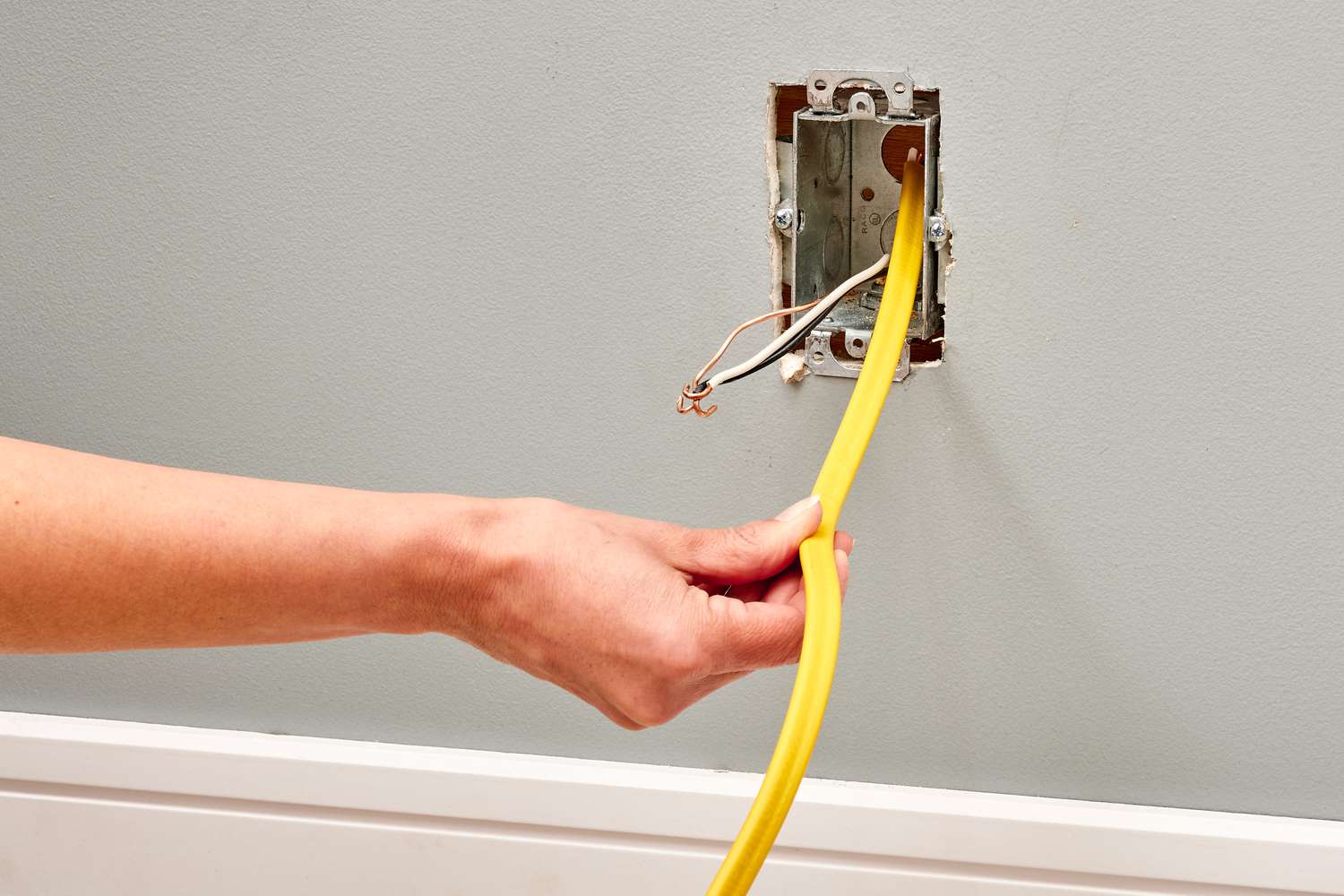

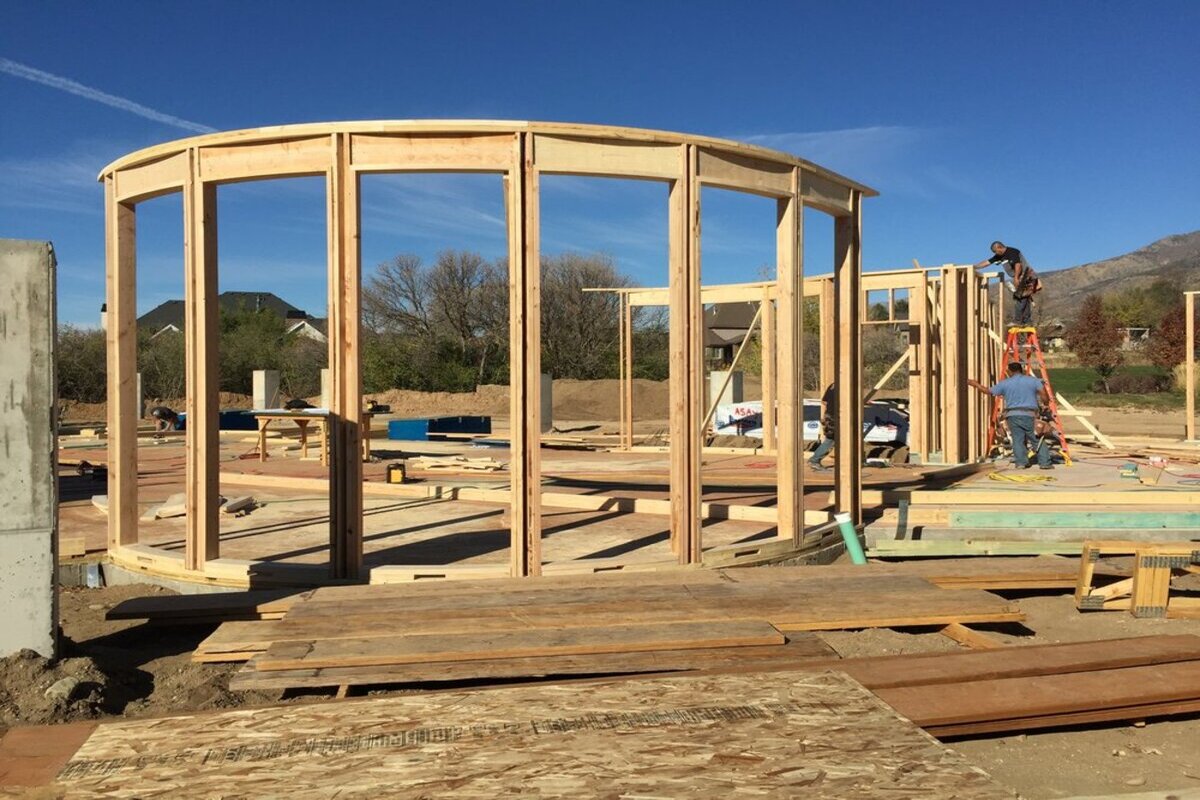
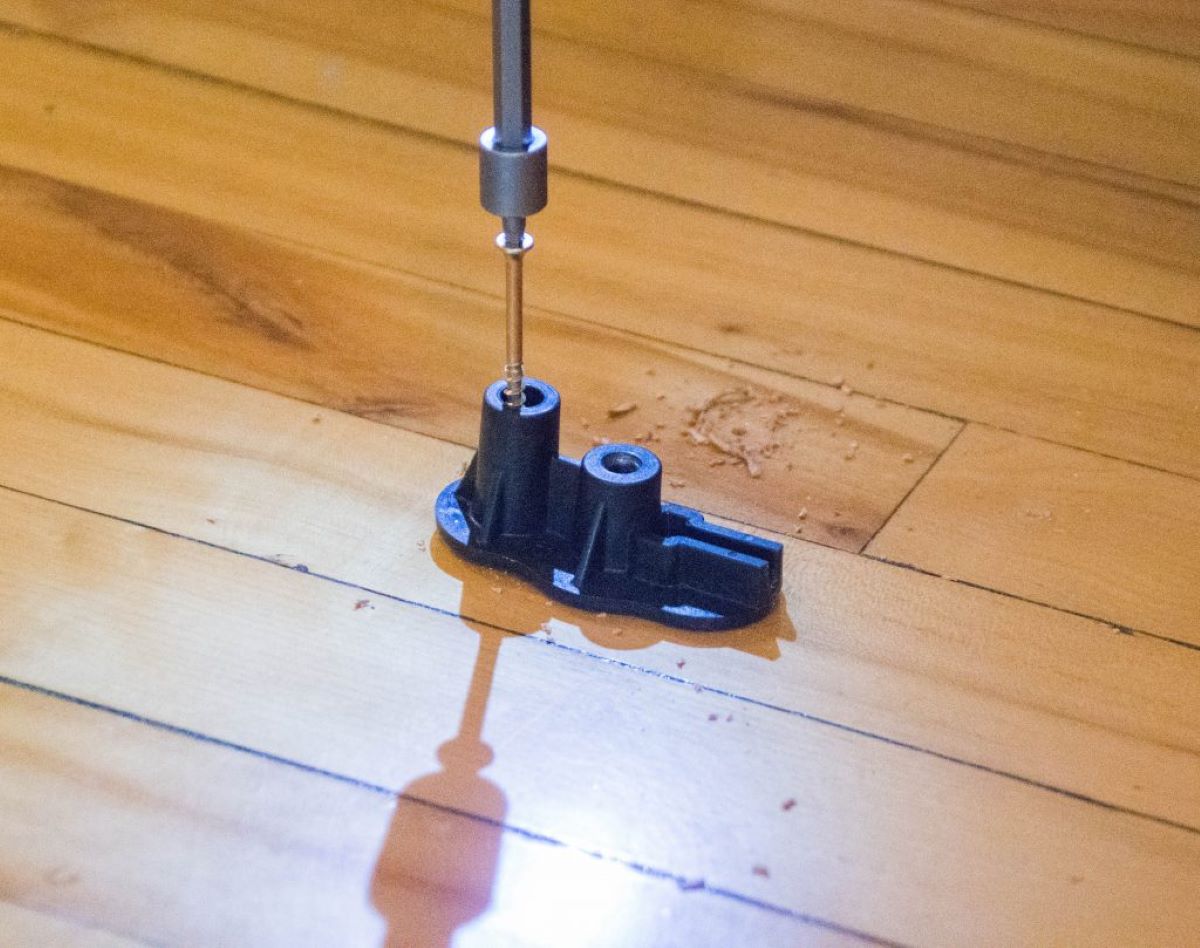
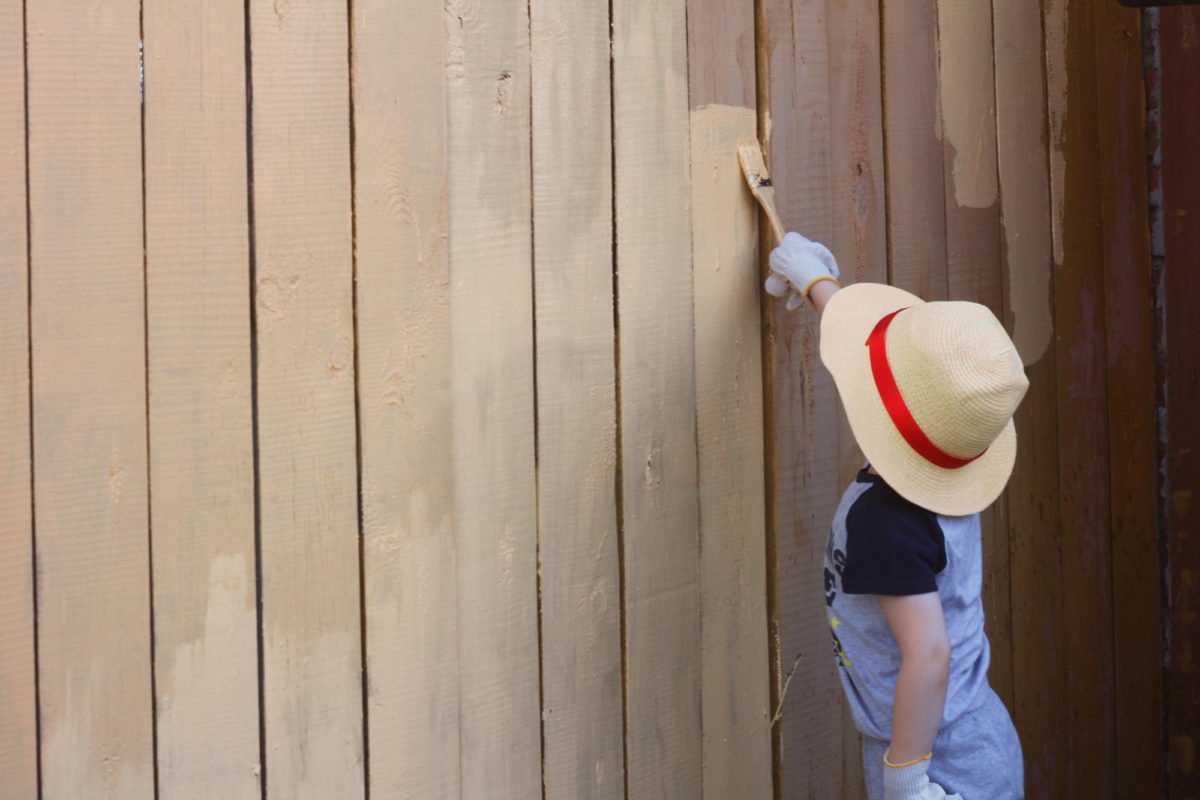


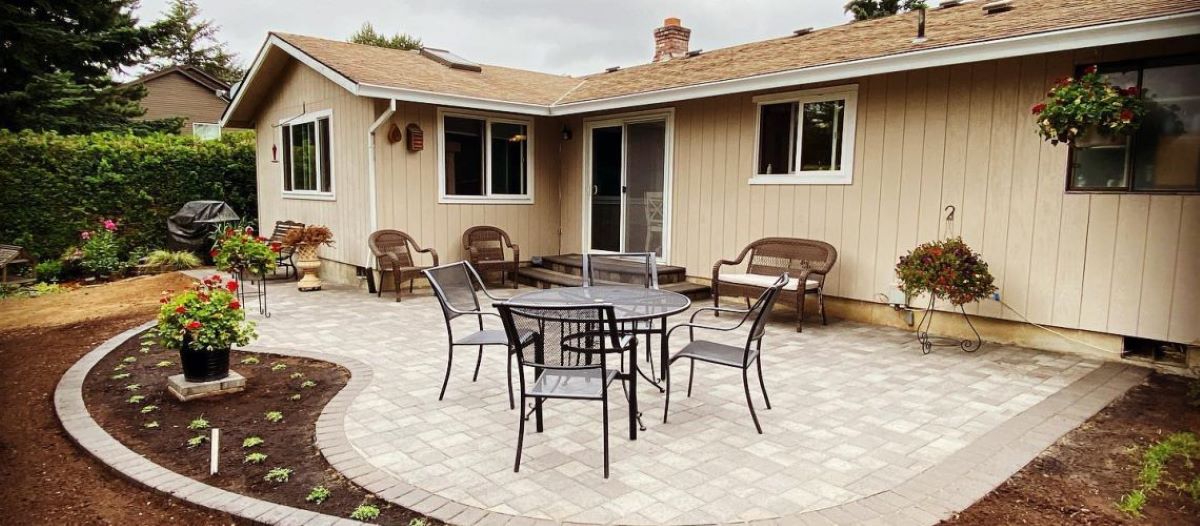
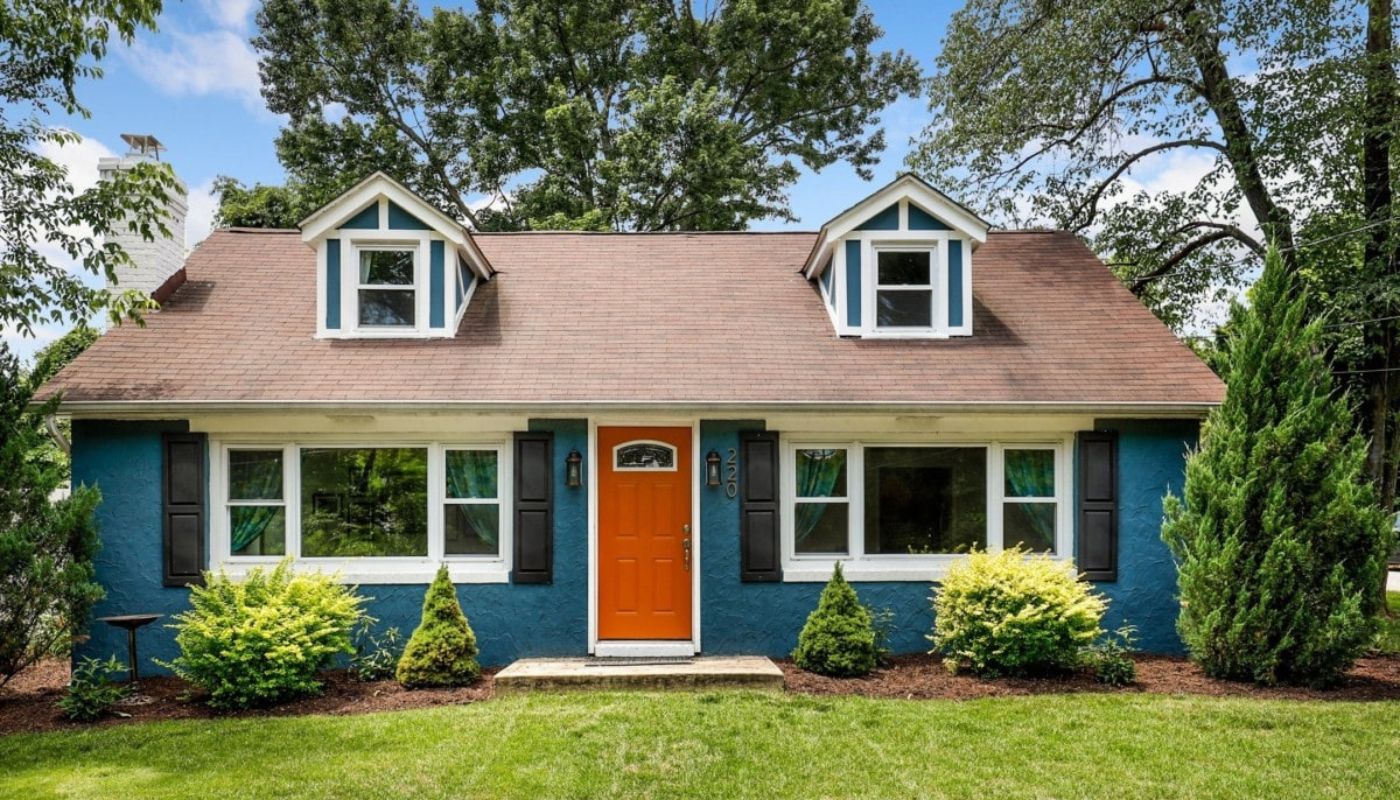
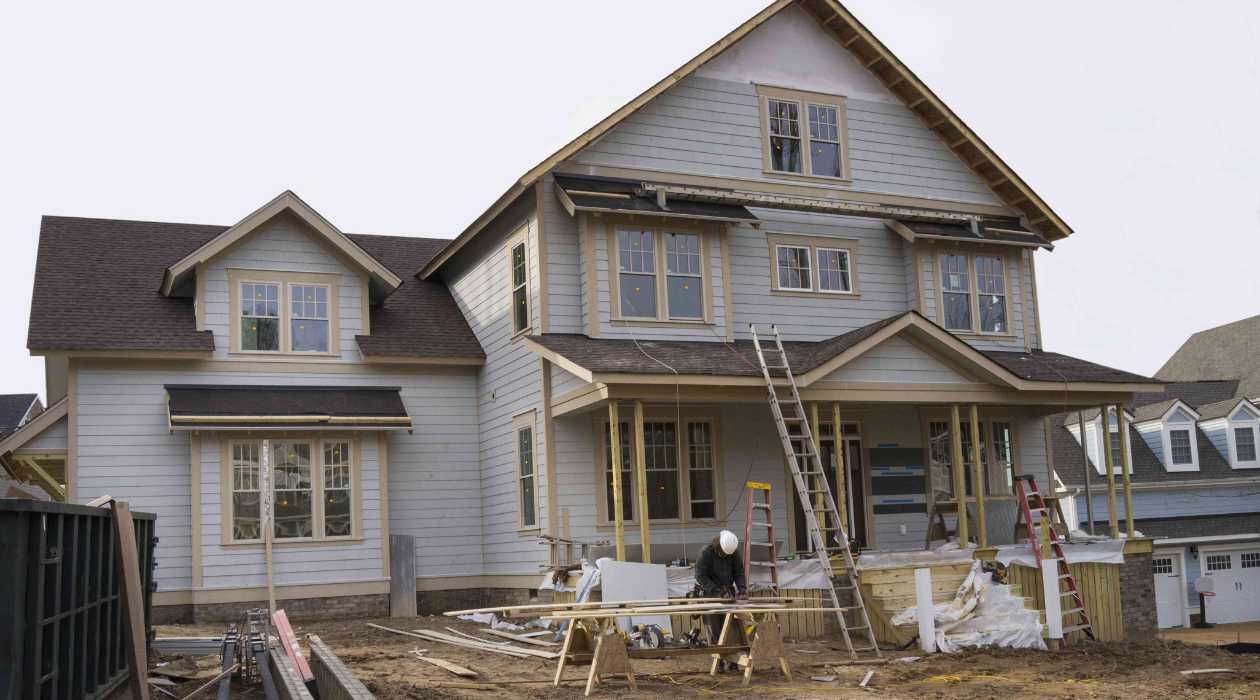

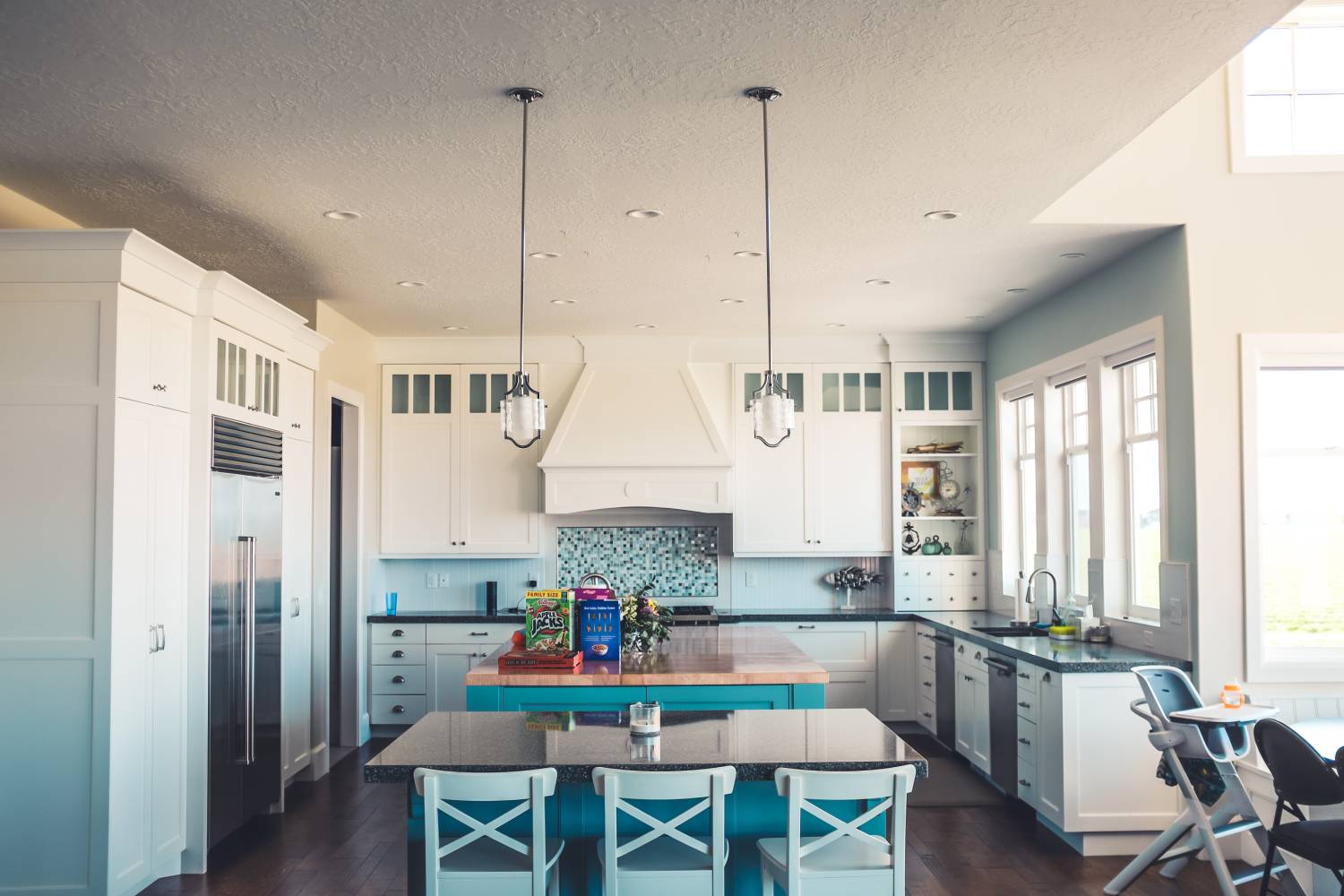


0 thoughts on “How To Prepare For Home Renovation”